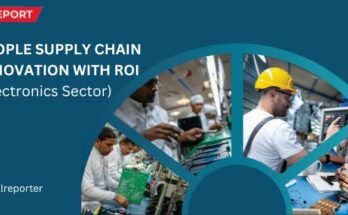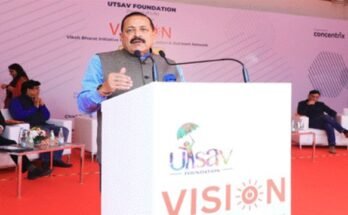New Delhi: PHDCCI organized an Industry Interactive Webinar on “FUTURE READY DIGITAL WORKFORCE OF INDIA” on 29th October 2020 with all the stakeholders of the skill ecosystem in India to discuss and deliberate on the roadmap for digital skilling of the workforce to be future ready.
Shri Sanjay Aggarwal said that the world has had to adapt itself to use of digital and electronic modes of the communication and doing business. This has necessitated the creation of a Digital Workforce to keep our businesses running. Industry 4.0 is heralding a whole new set of job skills such as business analytics, data science, machine learning, artificial intelligence, cloud computing, blockchain and Internet of Things (IoT).
The Future Ready – Digital Workforce in its new ‘avatar’ will have to cut across the different functions of an organisation as also across all sectors and not remain in the realms of IT industry or a few other chosen ones. Infact, the IT industry will need to take up the role of not only developing technology but also skilling the workforce by developing modules which are relevant and specific to functions of the organisations as also for specific sectors. Further India being a country with a young workforce with excellent skillsets in areas like IT and healthcare can take a lead which will help us to compete globally in capability and efficiency.
Mr. Jayant Krishna said that India has created a special niche in the world in terms of the skilled workforce and we have great demographic, which we need to develop and harness. We have the youngest population and that is our strength to prepare a future ready digital workforce. It is a fact that around 98% of the work was being done at the time of Covid lockdown, this was just possible because of the digital skill we possess. There is a lot of scope in developing new digital skilling modules and content for making the population digital ready.
Mr. Ajit Gupta said that empowering people with future-ready digital skills is a key priority for governments around the world. He also said “Digitalisation is the key to industry 4.0 and exponential growth. Incorporating the digital environment will be crucial to the future competitiveness of manufacturing companies.”
Prof.Sudhir kumar Barai said that Industry-Academia connect is very important for imparting the right set of skills to the students. The curriculum needs to be designed in harmony with the future requirements of the industry. We should make work integrated learning programme for making the workforce industry friendly.
Prof. Prem Kumar Kalra shared that the a future ready digital workforce can only be created by creating good digital leaders. If the leaders are serving public at large then we can see the difference in society. How much experiment we can do to with new technologies and digitization and how much the industry permits us to do so will decide the pace of digital skilling in India. What is the actual need for future is how much and how will are we prepared to undertake skilling for the same is important.
Ms. Sonia Sahgal shared her thought how much deep we making the use of digital technology in our lives. This shows that we are preparing ourselves for the future. There needs to be a fundamental mindset change to adapt to the virtual world and digital skills. It is a constant discovery of the path of change. The Current generation is more open to learning newer technologies and not averse to them.
Ms. Supriya Menon said we need to be networked and connected through digital means for adapting ourselves to the future needs. The Workforce has to adopt to the digital ways of working. Digitalization also allows inclusions and diversity across all regions and sectors.
Ms. Anuka Kumar said that the whole idea of digital sklling program is to allow people to adopt technology and get used to it. It is important for the workforce to adopt to cloud computing, data analysis, IoT etc on time so that we are not left out of the race. The awareness level of digital technology has grown. The pandemic has enabled all the verticals to start using digital means and virtual needs right away from health care to fitness etc.
Mr. Sameer Aggarwal shared that all the stakeholders are thinking and working on the same line to align themselves to the changing needs of workforce with respect to technology and learning. He said that the hiring has now picked up after the Covid-19 impact. The GenZ have higher potential to learn new age digital technology and hence they would be the real digital workforce for future. Democratization of opportunities is happening across all the sectors in India. We need to create an ecosystem for learning where we need to focus on content, community and outcomes.
Mr. Anshuman Singh said that we are getting into industry 4.0 and the tech companies are creating enormous amount of value with their innovations. Coding is the most important for digitalization and future of learning and India must go ahead to adopt it at all levels.
We may at least have the knowledge of basic coding. It’s not about content only for creating a digital workforce it also requires a support ecosystem like peer to peer support for online learning. Access to a good quality education is very limited in India and we need to work a lot in making the Indian workforce competent enough to sustain the future technology revolution in workplace.
The Webinar concluded with the Concluding Remark and Vote of Thanks by Mr. Saurabh Sanyal, Secretary General, PHDCCI..
The Session was moderated by Mr. Venkatesh Sarvasiddhi, Senior Head-Digital Skills, Industry Partnership & CSR, NSDC and Mr. Vivek Seigell, Principal Director, PHDCCI.



